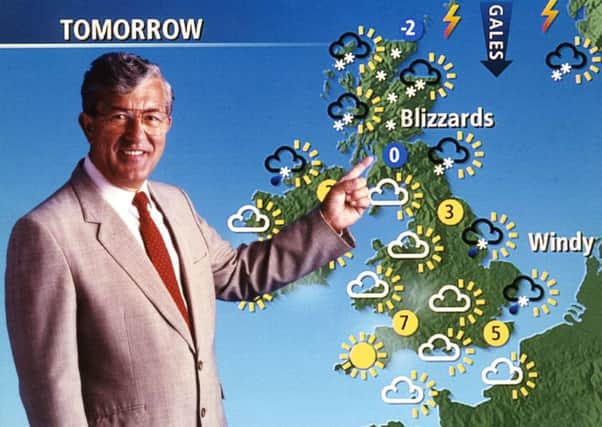Yellow warning: Let's end these '˜weather nanny' forecasts says Bill Giles


Giles, who led the BBC weather team for 17 years until he retired in 2000, said it felt like the public had been “inundated” with “yellow” and “amber” weather warnings over the winter and questioned whether it reduced how effective they were.
Writing in the Radio Times, he said viewers are no longer trusted to use their judgment, adding: “On frosty and snowy nights, does the forecaster really need to tell people to watch out on untreated roads and pavements?
Advertisement
Hide AdAdvertisement
Hide Ad“I think they could safely just mention the ice and expect viewers to use their common sense.”
He continued: “Of course, if the forecast is for exceptionally severe weather, which happens about once every five years, then due warnings and possible consequences must be given.
“But to do this with all of the dozen or so named winter storms risks making people immune to the warnings.
“And just because we’re now into spring, at least where weather forecasters are concerned, it doesn’t mean the warnings will stop.
Advertisement
Hide AdAdvertisement
Hide Ad“We have yet to get the summer thunderstorms and consequent flooding as well as a warning of impending heatwaves.
“So while we must consider the effects of severe weather on the population at large rather than just pure weather information, for weather warnings to be effective our forecasters must beware of behaving like nannies.”
Giles said he backed a system under which “only sensible warnings of the effects of bad weather, duly considered by all of the experts, would be given out when relevant and it would reduce the number of off-the-cuff remarks that happen today”.
He concluded with his own forecast for the weeks ahead, predicting mild weather and rain for March but with a chance of damaging frosts into April, adding: “Which, as a gardener, is the one weather warning I do really want to hear.”